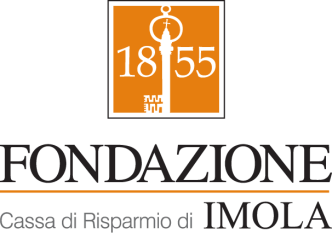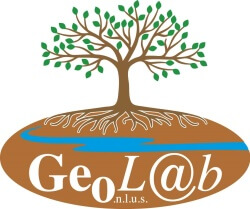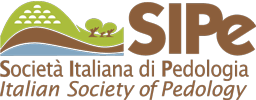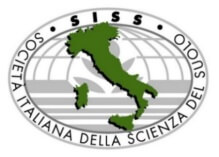Solid Waste Management practices among industries in Ota, Ogun State, Nigeria
DOI:
https://doi.org/10.6092/issn.2281-4485/16445Keywords:
Solid Waste Management, Industries, Environmental Hazard, NigeriaAbstract
This study examined the profile of industries in Ota, Ogun State; determined the types of waste produced in the industries; identified and assessed the agencies responsible for managing industrial waste; examined the different storage and disposal methods employed and assessed how environmentally friendly the storage; collection and disposal methods of wastes in the industries. These were intended to provide information that will assist policymakers and industries management to develop an environmentally friendly waste management practice in the study area.
Total enumeration was used in the collection of primary data from industries. A total of 102 questionnaires (80.9%) were retrieved and used for data analysis. The study established that 66.8% of the industries were manufacturing industries being the most abundant while 1% was the service industry. Also, the largest amount of waste generated in the study area was metal/steel. Next to it were paper and nylon. Findings further revealed that the most commonly used method of waste collection was big waste bags (40%) and the least being garbage bags and old metal containers (12%). In addition, 27% of the industries practiced the recycling method of waste disposal while 9.1% and 2.1% still dispose of their waste in vacant plots/open spaces and dilapidated/uncompleted buildings. The study concluded that the solid waste management practices among industries in Ota; Ogun State were not adequate thereby causing diverse impacts that are detrimental to the ecosystem.
References
ADEKOYA N., BISHOP C. (1992) Failure of the Environmental Health Program in Nigeria: Concern for Health Planners in Developing Nations. International Journal of Environmental Health Research, 2:167-170. https://doi.org/10.1080/09603129209356749
AMINU S., AHMED F. (2021) An overview of hazardous waste in Nigeria. Dutse Journal of Pure and Applied Sciences, 7(4b):214-221. https://doi.org/10.4314/dujopas.v7i4b.22
ANAND P. B. (1999) Waste management in Madras revisited. Environment and Urbanization, 11(2):161–176. https://doi.org/10.1177/095624789901100214
AWUCHI, C.G., HANNINGTON T., AWUCHI C.G., IGWE V. .S.; AMAGWULA I.O. (2020) Industrial waste management, treatment, and health issues: wastewater, solid, and electronic wastes. European Academic Research 8(2):1081-1119. ISSN: 2286-4822
AYALA (2011) Agro-industrial potential of exotic fruits by-products as a source of food additives. Food Res. Int. 44, 1866-1874.
CHADAR S.N, CHADAR K. (2017) Solid waste pollution: a hazard to environment. Recent Adv Petrochem Sci 2:41–53. http://dx.doi.org/10.19080/RAPSCI.2017.02.555586
CHEN D, YIN L, WANG H, HE P. (2014) Pyrolysis technologies for municipal solid waste: a review of waste management. https://doi.org/10.1016/j.wasman.2014.08.004
CZAJCZY´NSKAA D, NANNOU T, ANGUILANO L, KRZY˙ ZY´NSKA R, GHAZALD H, SPENCERE N, JOUHARA H. (2017) Potentials of pyrolysis processes in the waste management sector. 1st international conference on sustainable energy and resource use in food chains, ICSEF 2017, Berkshire, UK Energy Procedia;123:387–94. http://dx.doi.org/10.1016/j.tsep.2017.06.003
COLLINS O. UGWU, CHIGBOGU G. OZOEGWU, PAUL A. OZOR, NDUKWE AGWU, C. MBOHWA. (2021) Waste reduction and utilization strategies to improve municipal solid waste management on Nigerian campuses. http://doi.org/10.1016/j.jfueco.2021.100025
EPA (1995). Decision maker guide to solid waste management. Vol. 2, United State Environmental Protection Agency. Washington D.C. Pp: 372.
FEDERAL ENVIRONMENTAL PROTECTION AGENCY (1991): Guidelines and Standard for Industrial Effluents, Gaseous emission, and Hazardous waste management in Nigeria.
GEYER, R., JAMBECK, J.R., LAW, K.L. (2017) Production, use, and fate of all plastics ever made – supplementary Information. Sci. Adv. 25–29. https://doi.org/10.1126/sciadv.1700782
HU Y., ZHAO L., ZHU Y., ZHANG B., HU G., XU B., HE C., DI MAIO F.. (2021) The fate of heavy metals and salts during the wet treatment of municipal solid waste incineration bottom ash. Waste Management, 15(121):33-41. https://doi.org/10.1016/j.wasman.2020.11.049
JUSTICE M. (2021) "Fisherfolk’s Perception of and Attitude to Solid Waste Disposal: Implications for Health, Aquatic Resources, and Sustainable Development", Journal of Environmental and Public Health, vol. 2021, Article ID 8853669, 12 pages, 2021. https://doi.org/10.1155/2021/8853669
MOHAMMAD AMIN KARAMI, MOHSEN SADANI, MEHDI FARZADKIA, NEZAM MIRZAEI, ANVAR ASADI (2015) System Analysis of Industrial Waste Management: A Case Study of Industrial Plants Located Between Tehran and Karaj. https://doi.org/10.4103/2277-9183.157706
MOMODU, N.S., DIMUNA, K. O. AND DIMUNA, J.E. (2011) “Mitigating the Impacts of Solid Wastes in Urban Centres in Nigeria”, Journals of Human and Ecological Sciences vol 1 34 no. pp 125-133. http://dx.doi.org/10.19044/esj.2016.v12n23p155
NATTAPON LEEABAI, CHINNATHAN AREEPRASERT, CHANOKNUNT, KHAOBANG, NITI VIRIYAPANITCHAKIJ, BUNDIT BUSSA, DILIXIAITI DILINAZI, FUMITAKE TAKAHASHI (2021). Waste Management Journal Vol. 121, pg 153-163. Global Engineering Course for Development, Tokyo Institute of Technology, G5-601, Suzukake, 4259, Nagatsuta, Midori-ku, Yokohama 226-8503, Japan. http://doi.org/10.1016/j.wasman2021.05.039
OCHUKO MARY OJO (2014) Solid Waste Management in Obantoko Area of Abeokuta, Nigeria. Journal of Emerging Trend in Engineering and Applied Science (JETEAS) 5(2): 111-115. ISSN: 2141-7016
OLADEYEDE, S.A; AYEDUN, C.A; DURODOLA, O.D. AND PETER, J.N. (2014) Residential Solid Waste Management in Sango-Ota, Ogun State: To Recycle or Not to Research on Humanities and Social Sciences, 4(26). pp. 189-194. ISSN: 2225-0484
ONIPEDE A.I.., BOLAJI B.O. (2004) Management and Disposal of Industrial Waste
Nigerian Journal of Mechanical Engineering Department, University of Ado-Ekiti, Nigeria Vol. 2, NO1.
PATHAK A.K., SINGH M.M., KUMAR V. (2011) Composting of municipal solid waste: a sustainable waste management technique in indian cities – a review. Int J Curr Res, 3:339–46. ISSN: 0975-833X
RASMI P. (2018) Impact of Industrialization on Environment and Sustainable Solutions Reflections from a South Indian Region. Centre of sustainable development, Indian Institute of Corporate Affairs, Manesar, Gurugram, India. http://dx.doi.org/10.1088/1755-1315/120/1/012016
RINKESH W. (2018) What is Solid Waste Management? Sources and Methods of Solid Waste Management - Conserve Energy Future. https://www.conserve--energy-future.com/sources-effects-methods-of-solid-waste-management.php
THE ARENA GROUP (2022) Industrialization and Economic Development. https://owlcation.com/social-sciences/
Downloads
Published
How to Cite
Issue
Section
License
Copyright (c) 2023 Temiloluwa E. Makinde, Adewumi I. Badiora, Oluwasola T. Omotoso

This work is licensed under a Creative Commons Attribution 4.0 International License.









